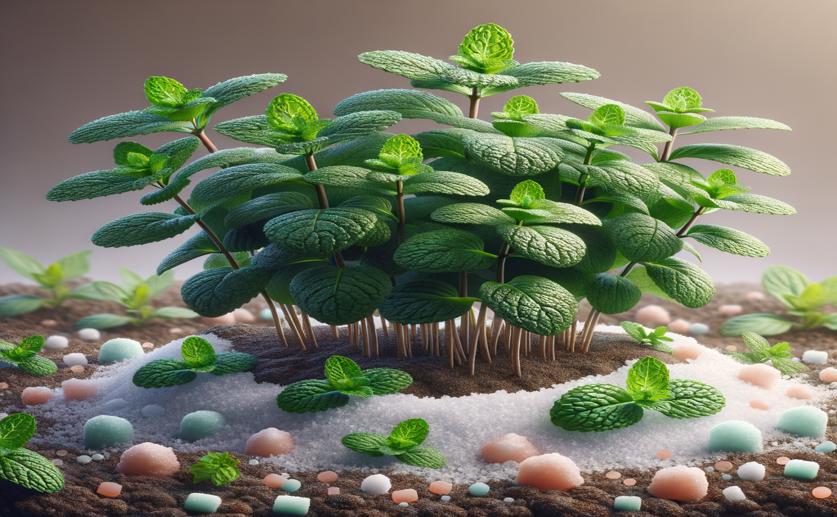
Cinnamic Acid Nanocomposites Help Peppermint Thrive in Salty Conditions
Greg Howard
4th July, 2024

Image Source: Natural Science News, 2024
Key Findings
- The study from the University of Mohaghegh Ardabili found that cinnamic acid (CA) and its nanocomposite (CMC-CA NC) can help peppermint plants tolerate salt stress
- CA and CMC-CA NC treatments significantly reduced stress markers like malondialdehyde and hydrogen peroxide in peppermint plants
- The treatments improved photosynthetic efficiency and osmotic balance, increasing chlorophyll fluorescence and proline content
References
Main Study
1) The ameliorating effects of cinnamic acid-based nanocomposite against salt stress in peppermint.
Published 3rd July, 2024
https://doi.org/10.1007/s11356-024-34158-0
Related Studies
2) The Role of Nanoparticles in Response of Plants to Abiotic Stress at Physiological, Biochemical, and Molecular Levels.
3) Interactions of nanoparticles and salinity stress at physiological, biochemical and molecular levels in plants: A review.
4) Piriformospora indica inoculation alleviates the adverse effect of NaCl stress on growth, gas exchange and chlorophyll fluorescence in tomato (Solanum lycopersicum L.).
5) Piriformospora indica confers salinity tolerance on tomato (Lycopersicon esculentum Mill.) through amelioration of nutrient accumulation, K+/Na+ homeostasis and water status.



 25th June, 2024 | Greg Howard
25th June, 2024 | Greg Howard